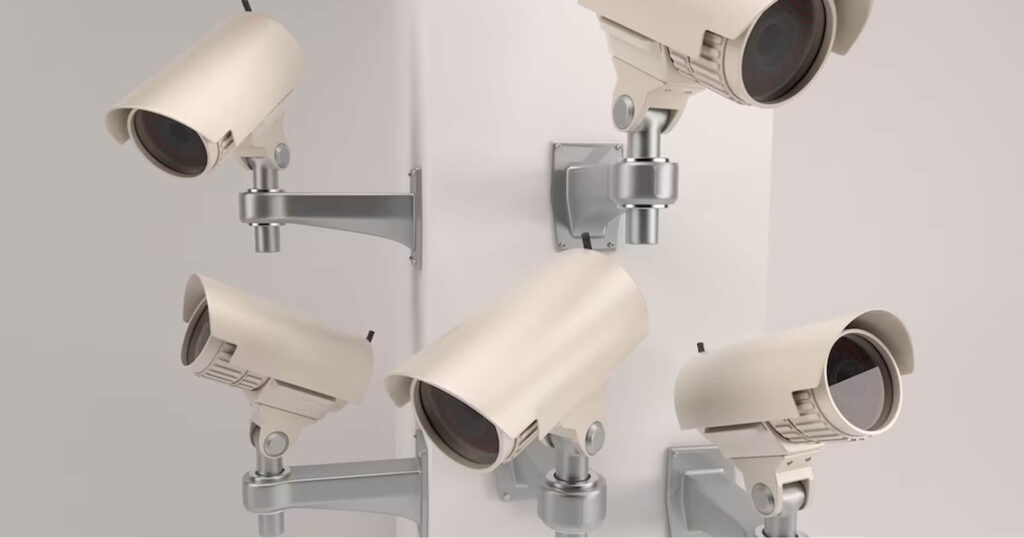
It’s no surprise that CCTV cameras have become essential to security worldwide. Customizing them to one’s liking requires choosing between wireless and wired systems based on their installation, costs, reliability, and performance. This article will examine both technologies in detail to enable you to make the wisest decision possible.
Overview of Wired CCTV Camera Systems
Wired CCTV cameras come with a transmitter cable that transports video signals to a digital video recorder (DVR) or network video recorder (NVR). The systems can easily be found in commercial settings and high-security areas because they are known for having excellent stability and reliability.
Benefits of Wired CCTV camera Systems
- High Quality Videos: As data is being transferred through the wires, the video quality is guaranteed to be clear
- Reliable Video Connection: Wireless security cameras experience signal loss, but wired cameras do not.
- Independence From Wi-Fi: A wired surveillance system does not require an internet connection.
- Can Cover Wide Areas: Suitable for larger properties, office buildings, and industrial sites.
- Cutting Off The Power Supply: These cameras have no dependency on batteries, so they are usable at all times.
Cons of Wired CCTV Systems
- Difficult Installation – Includes drilling and cable work that require labor resources.
- Reduced Mobility – Unable to be relocated or shifted once set up.
- Higher Upfront Spending – Professional installation costs incur additional expenses.

Understanding Wireless CCTV Systems
Wireless CCTV Cameras utilize a receiver or cloud storage to transmit videos using Wi-Fi or other wireless methods. This is common for homes, small businesses, and temporary setups.
Advantages of Wireless CCTV Systems
Simple Installation – Allows for ease of use as no additional wiring is required, making it suitable for personal DIY installations.
Easily Relocatable – Can be changed and relocated from their initial positions with relative ease.
Remote Cloud Access – Many smart wireless cameras permit users to access the view and store them on the cloud in real time.
Improved Appearance – The absence of visible wires make the space setup neat and uncluttered.
Self-Powered Devices – A few models are able to work outdoors and away from a permanent power source.
Disadvantages of Wireless CCTV Systems
Signal Disruption – Blocking walls, distance, and other wireless devices can hinder the performance functionality of the device.
Restricted Range – Wireless signal strength dictates range coverage.
Battery Life Issues – Certain types need to be charged or get their batteries replaced on a regular basis.
Possible Security Issues – If not secured correctly, wireless cameras are exposed to hacking, making them unsafe.
Which CCTV System Versatile Enough For You?
Your individual protection needs will determine whether you select wired or wireless CCTV systems.
Choose Wired CCTV if:
- You desire picture-perfect, high-definition videos with no signal interruptions.
- You are setting up long-term security systems for larger properties.
- You need 24/7 uninterrupted monitoring that does not depend on power or internet.
Choose Wireless CCTV if:
- You want to do the installation yourself, and would prefer a design and layout that is less structured.
- You want remote access to the footage which is aided by cloud storage, and prefer modern smart surveillance systems.
- You want to use them for rental units or set up surveillance temporarily, so portability is important.

Conclusion
Whether wireless or wired, the security cameras available offer different features suited for different needs. If reliability and long-term security is your paramount need, the wired CCTV cameras would be the best pick. However, for an easier, flexible installation, the wireless CCTV system would be the ideal choice.
For a tailored video surveillance system that caters to your specific needs, consult a professional security provider to install CCTV and other security solutions
